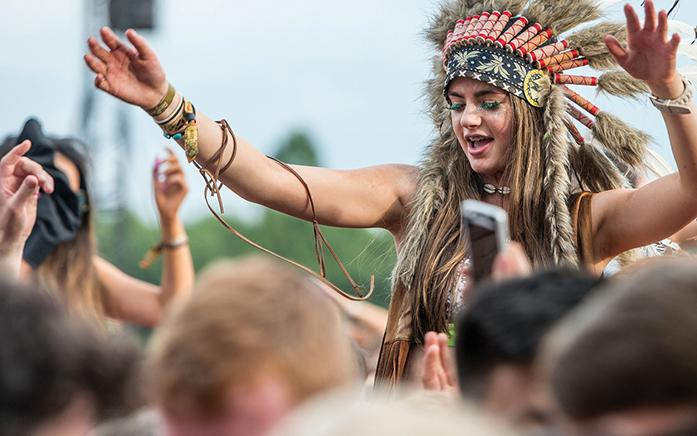A.J.K O’Donnell
daily-iowan@uiowa.edu
In four days, the population of Iowa City will substantially grow as thousands pile into Kinnick Stadium to watch the inaugural kickoff of the 2016 Hawkeye season. Concurrently, students and fans alike will engage in tailgate gatherings, theme parties, and celebratory events. As the season of athletics quickly approaches, it is paramount for students to enter into an understanding of the problematic practices that stem for appropriation through “theme” events and subsequent celebrations throughout the calendar year.
Initially, we must ask ourselves, what exactly is appropriation, and in what context does it border on micro-aggression? For example, an appropriation that has seemly become common in American social spheres is the production of Luaus. Wearing “grass skirts,” “coconut bras,” and lei necklaces is the very definition of oppressive post-colonization occurring. White people have become accustomed to benefiting from the tyrannical conquering of a culture and then hundreds of years later monopolizing and converting customs into a showcase of shallow celebration. “Theme” events that are separate from the original culture that utilized these customs is blatant appropriation.
Appropriation is existent when the individuals who plan an event or partake in an event have structured it on a culture other than their own without a purposeful lens. It’s Cinco de Mayo weekend, and your group of friends decide to host a party centered on tacos and salsa, and everyone attending must wear sombreros and decadent ponchos. Unless you are the Latino-Native American Cultural Center or another culturally based resource on campus, it is inherently disrespectful to customize the Mexican holiday to a mere “theme” celebration for you and your peers.
Actively challenging appropriation is both beneficial to you, as an individual who is outside a specific culture and those whose heritage is rooted in these practices. If you are on a planning committee for an event, voice opposition to the use of culturally founded celebrations that are not your own. Instead, attend and support the individuals you are acquainted with who celebrate an aspect of their culture. You will learn something in the experience of another culture’s form, and you won’t be systematically shaming and molding cultures to fit your own preferences and endeavors.
Actions that are appropriative, but also horrendously racist, insincere, and oppressive, are more problematic than theme gatherings. Black-face or any form of “assuming” the skin tones of other races are never acceptable. Giving your body attributes of another culture or race, such as eye shape, head size, or hair type, is also not justifiable. Finally, the use of Native American garments is one of the epitomes of disrespectful appropriation and racism. Those who find culturally native accessories “vintage” or “individually expressive” — specifically the hipster or vintage culture, need to stop and recognize their misuse of sacred or cultural wear.
While fooball season starts next week, it is important to shy away from America’s true favorite pastime, appropriation. The bottom line is, if the culture being used is not your own, and the space is not one of academic and enriching mentalities, then yes, you are actively choosing to appropriate cultural practices. What is wrong with the classic “Neon Party”? I mean, come on, the 1980s won’t hold it against you to wear that hot pink jogging suit and twist to the Dirty Dancing soundtrack. Enjoy the Hawkeye season, and future events you attend this coming year, but do so in a respectful and mindful manner.



